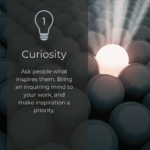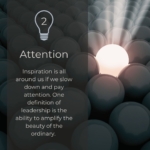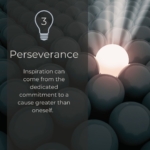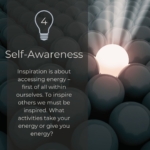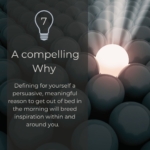Find Your Inspired Leadership: The Power Of Your Presence
The ability to inspire separates leaders from bosses. It takes inspired leadership to create an environment where people genuinely care about their work, about each other, and about going the extra mile. Only a few leaders are able to infuse the necessary energy, passion, and connection into their team.
The ability to inspire isn’t about your proficiency. It’s about your presence.
Eight conditions that access inspiration:
- Curiosity. Ask people what inspires them. Bring an inquiring mind to your work, and make inspiration a priority.
- Attention. Inspiration is all around us, if we slow down and pay attention. One definition of leadership is the ability to amplify the beauty of the ordinary.
- Perseverance. Inspiration can come from the dedicated commitment to a cause greater than oneself. The courage to recover from an addiction, care for a dying loved one, or show up for a colleague are all acts of inspiration.
- Self-Awareness. Inspiration is about accessing energy – first of all within ourselves. To inspire others we must be inspired. What activities take your energy or give you energy? How is your own personal energy account?
- Connection. When we truly connect with others we make deposits in the inspiration account. Getting past the daily grind of the transactions of work and making time for connections brings a transformative quality into our work.
- Authenticity. When we connect with our true nature and express it consciously in our life and our work, inspiration is born. Don’t ask what the world needs. Ask what makes you come alive. What the world needs is for you to come alive.
- A Compelling Why. What inspires you to get up early? To stay late? To go the extra mile? Defining for yourself a persuasive, meaningful reason to get out of bed in the morning will breed inspiration within and around you.
- Generosity. To be inspiring, be kind. Generosity generates inspiration. What we appreciate appreciates.
While connections, courage, and compassion are conditions for inspiration, it ultimately takes commitment. It’s easier to move people than to get people moving. The most powerful inspiration is our personal commitment.
If you are committed to go beyond learning about leadership to true leadership development, check out our Authentic Leadership Academy: https://lnkd.in/gMi2euzp
And if you want a taste of the Academy, sign up for our complimentary Academy Mini-Series in March. https://lnkd.in/g4M9qpWh

